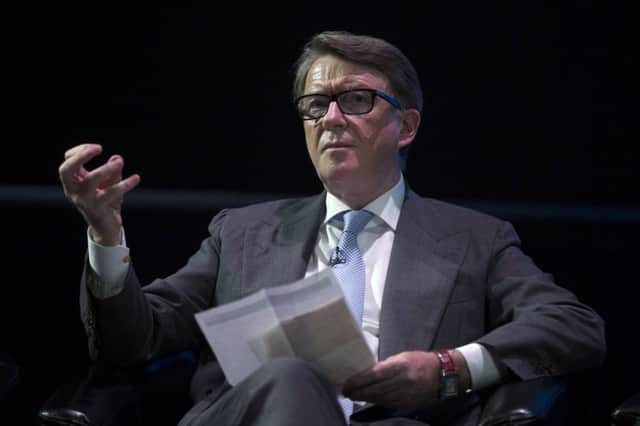David Maddox: Mandelson is both right and wrong over one-party state verdict


Nothing sums this up more than the warning issued this week by Lord Mandelson that Britain is in danger of becoming a “one-party state” with the Conservatives ruling almost unopposed if the Corbyn experiment as Labour leader is allowed to run its course to the election in 2020.
As is often the case with one of the chief architects of new Labour and Blairism, Lord Mandelson is, of course, both right and wrong. He is wrong because Britain is in danger of becoming two one-party states, with the Conservatives dominating in England and the SNP ruling almost unopposed in Scotland. But he is right in his overall analysis that a failed Labour Party leaves a vacuum where there should be a balance of power and a questioning opposition to the ruling parties.
Advertisement
Hide AdAdvertisement
Hide AdIt is strange to remember now that nine years ago Gordon Brown was prime minister and infamously dithering over whether to call an early election which may have seen him kill off the Conservative threat, while Jack McConnell was the Labour first minister in Scotland. In a little-reported speech, Mr Brown had told Labour activists that they should be preparing to become the natural party of government – in other words, ironically, preparing to be the one-party state that Lord Mandelson so fears now. By then, though, the seeds of Labour’s destruction had been sown. It is worth remembering that it was not just tiredness over a Labour government, or even the Iraq War, and an economic crisis that finished them off, but hard work from the two principle opponents on each side of the Border, the Tories and SNP.
In the Conservative case, David Cameron had done a lot to detoxify the brand and reposition it, while first John Swinney, then the returning Alex Salmond had turned the SNP into a party of professional politicians with a disciplined, clear message which pushed the fundamentalists to the fringes or out altogether.
Both parties promised much that they could not deliver – paying off student debt in the case of the SNP and reforming Westminster as the Conservatives pledged – but in the end it was proving themselves competent alternatives to Labour that allowed them first to win minority victories then majority ones.
Next year will be a crucial indicator as to whether the next hard left message of the current Labour leadership will work. Not only are there the Holyrood elections, but London will also elect a new mayor and the Welsh will vote for a new government.
The prospects look pretty bleak for Labour in the run-up to 2020 unless something radically changes and it is hard to see that happening, with the way the Corbynites now dominate Labour membership. We have already seen in Scotland what happens in a one-party state: services diminish, with the falling behind of healthcare standards, problems with policing and reduced accountability, such as the tightening up of freedom of information and the attempts to take political control of universities.
It is possible that a new party could replace Labour in opposition. But would that be a party like Ukip on an anti-immigration message rather than an economic ticket? The problem is that Lord Mandelson is right, the country needs an effective Labour Party. However, Labour will not get back to winning ways through the failures of others but through its own hard work.